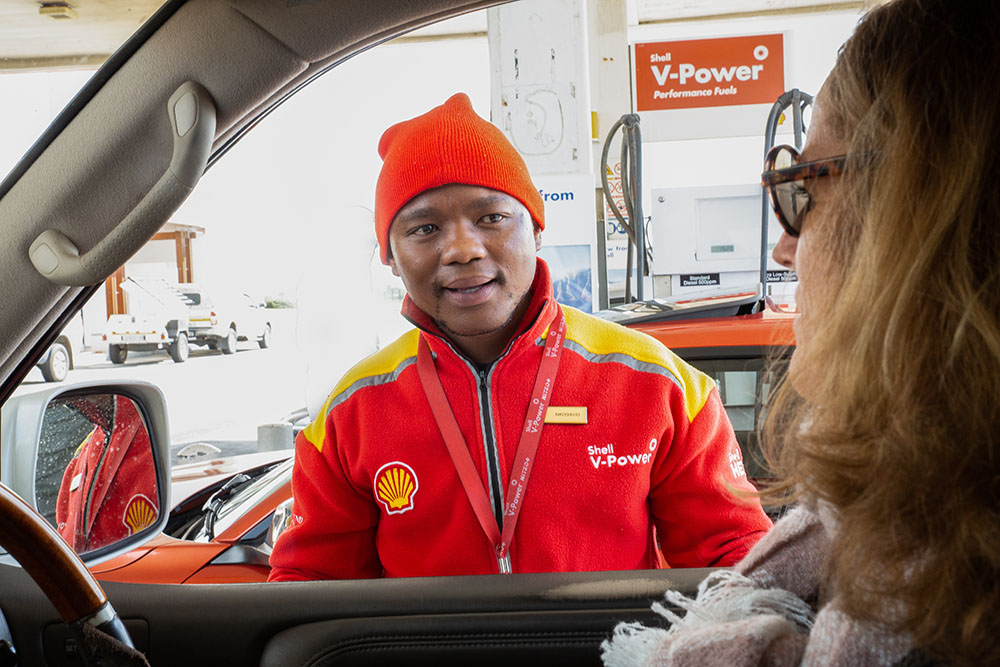Petrol station workers are really important for making sure cars keep running smoothly in South Africa. They’re the ones who help people fill up their cars with petrol, make sure everyone stays safe, and offer important services at petrol stations all over the country. Knowing Petrol Attendant Salary is important for both people who want to work at petrol stations and the companies that hire them. In this article, we’ll talk about how much petrol station workers in South Africa typically earn.
How Much Do Petrol Attendants Earn?

Factors Influencing Petrol Attendant Salaries
Several factors influence the salaries of petrol attendants in South Africa. These include:
Factors That Affect Petrol Attendant Salaries
1. Location of Employment
Urban areas (Johannesburg, Cape Town, Durban): Higher salaries due to busier filling stations and higher living costs.
Rural areas: Generally lower wages, though jobs may be less competitive.
2. Employer Policies
Large fuel companies (like Shell, Engen, BP, TotalEnergies) often provide better pay and benefits compared to independent filling stations.
3. Experience and Skills
Petrol attendants with more years of service or additional training (like customer service, cash handling, or stock control) may earn higher wages.
4. Shift Work and Hours
Night shifts or long weekend shifts sometimes come with overtime pay or higher rates.
Petrol Attendant Salary Compared to Other Jobs in South Africa
| Job Title | Average Monthly Salary | Notes |
|---|---|---|
| Petrol Attendant | R5,000 – R7,000 | Includes tips and benefits |
| Cashier (Retail) | R4,500 – R6,000 | Similar entry-level job |
| Security Guard | R6,000 – R8,000 | Slightly higher risk role |
| Waiter/Waitress | R4,000 – R5,500 | Tips can increase earnings |
| Truck Driver | R10,000 – R18,000 | Requires license & training |
This comparison shows that petrol attendants earn slightly above some retail jobs but below skilled roles like truck drivers.
Additional Benefits for Petrol Attendants
Besides salaries, many petrol attendants receive perks and benefits:
Tips: Customers often tip attendants for good service, adding an extra R500–R1,500 per month on average.
Overtime pay: Especially for those working public holidays and weekends.
Uniforms provided by the employer.
Discounts on fuel/food at certain stations.
Medical aid or pension fund contributions (mainly at bigger companies).
How to Become a Petrol Attendant?
If you’re interested in becoming a petrol attendant, here’s a simple step-by-step guide:
Step 1: Meet the Minimum Requirements
No formal qualifications are usually required.
Basic literacy and numeracy skills are needed.
Being customer-friendly and reliable is a must.
Step 2: Apply at Filling Stations
Visit local petrol stations and ask if they’re hiring.
Step 3: On-the-Job Training
Petrol attendants are trained on-site.
Training includes safety procedures, customer service, and handling cash or card transactions.
Step 4: Gain Experience
With time, you may get promotions to supervisor, cashier, or forecourt manager, which come with higher salaries.
Challenges Petrol Attendants Face
While the job is rewarding in terms of customer interaction, it also comes with challenges:
Exposure to fuel fumes and outdoor weather.
Long hours (often standing all day).
Risk of theft or robbery at some stations.
Limited career progression compared to skilled professions.
Career Development and Opportunities
Frequently Asked Questions
Are night shift petrol attendants paid more?
Yes. Many companies provide a night shift allowance, which increases the hourly wage for late or overnight shifts.
Do petrol attendants receive tips?
It depends on local customs. In some regions customers tip for services like windshield cleaning or tire pressure checks, while in others tipping is uncommon.
Does experience increase a petrol attendant’s salary?
In many cases yes. Experienced attendants may receive small increments, better shift assignments, or promotions to cashier or supervisor roles.
Are petrol attendants paid weekly or monthly?
This depends on the employer. Some stations pay weekly wages while larger companies usually pay monthly.
Do petrol attendants get overtime pay?
If they work beyond standard hours, they typically receive overtime pay according to local labor laws.
